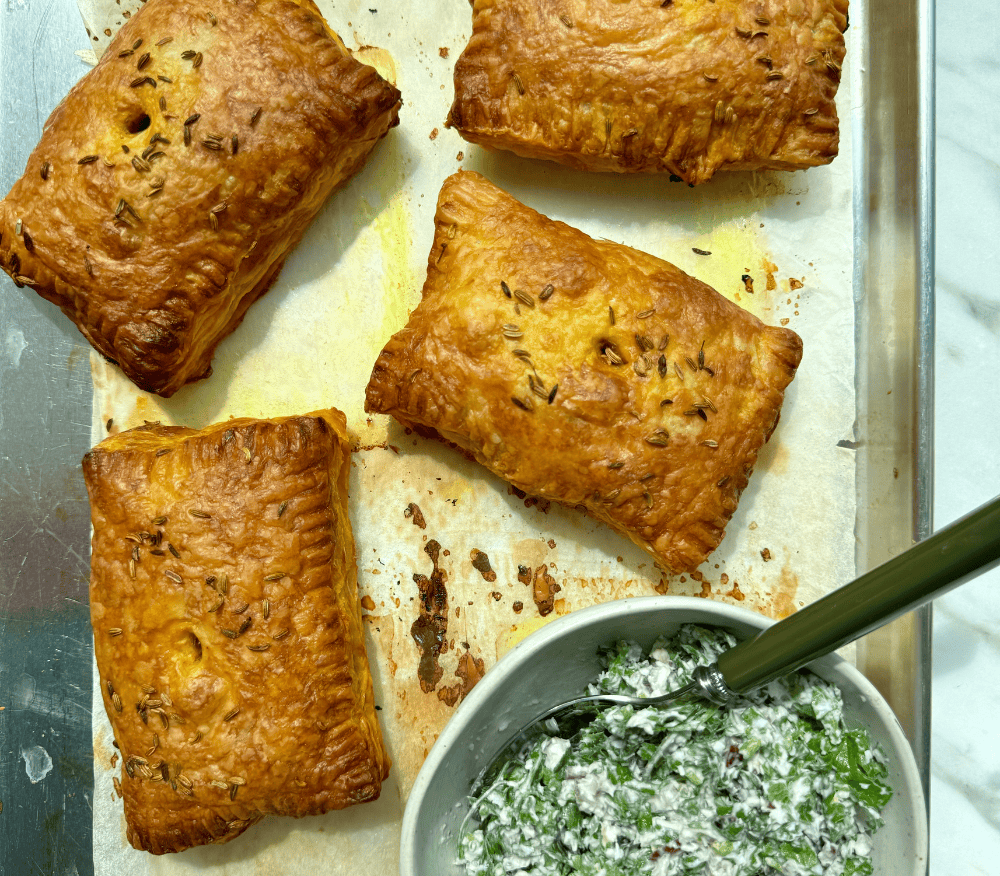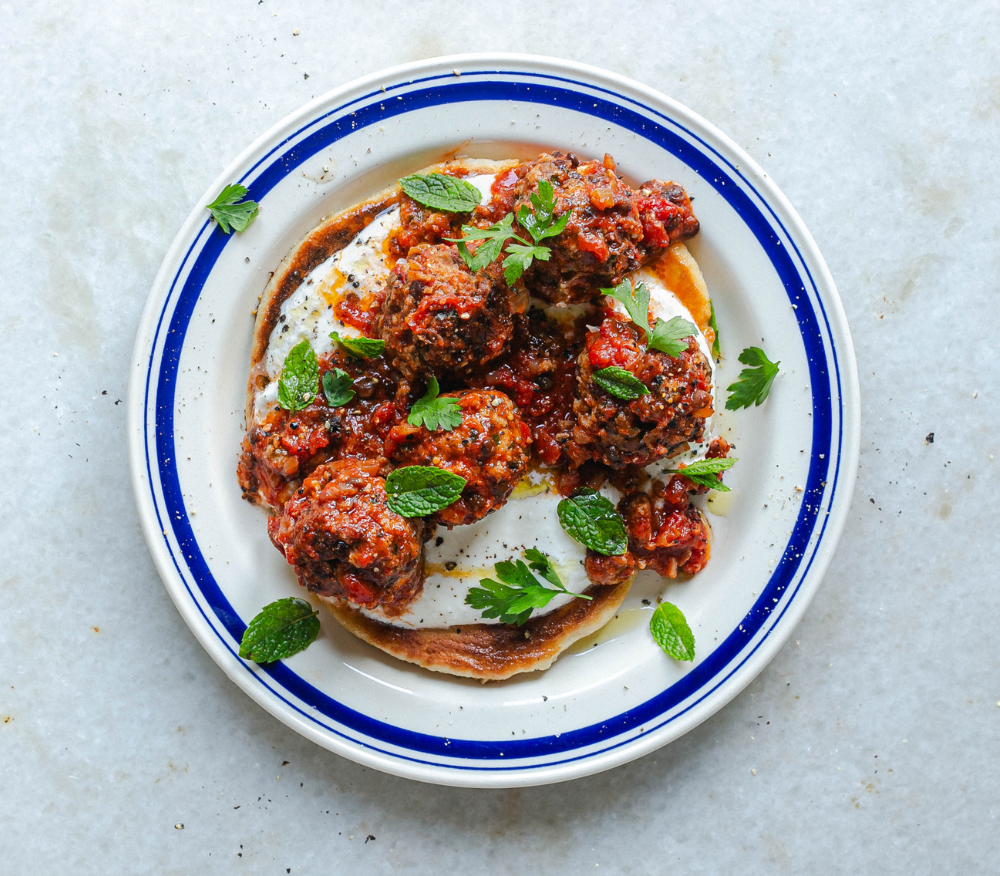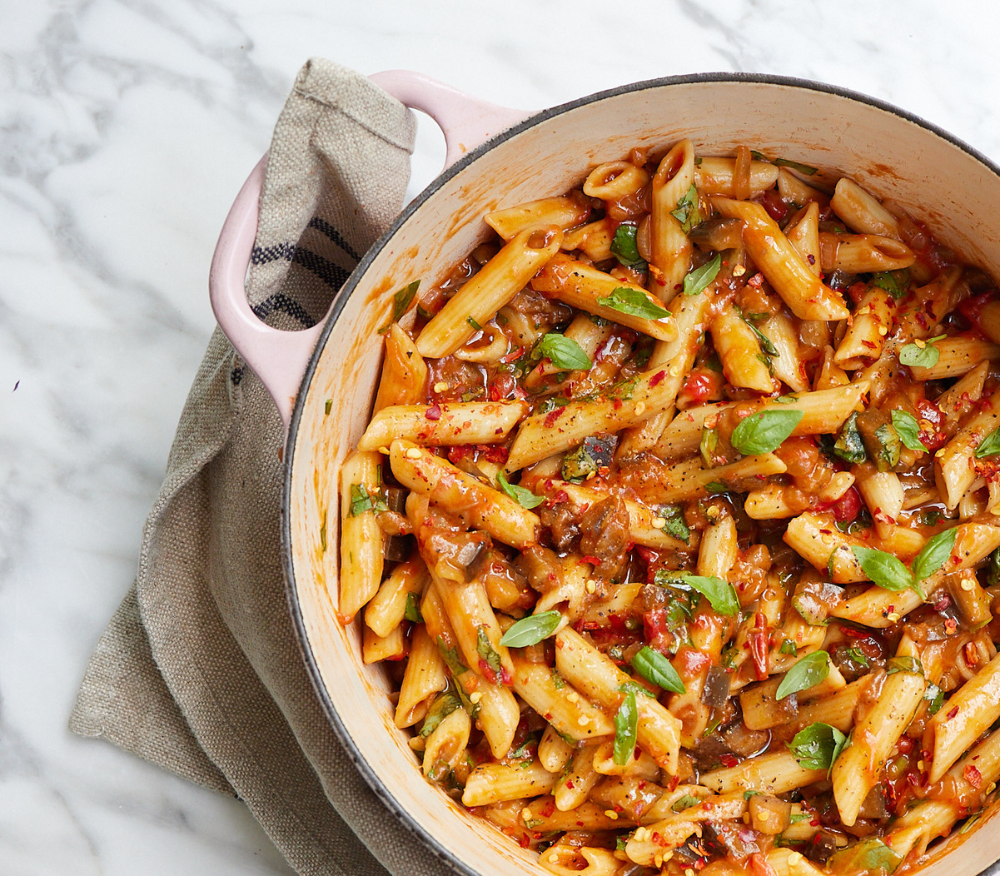September: Week Three
Here is the next instalment of weekly recipe plans that focus on supporting your immunity during the Autumn and Winter months. Like before, we’ll highlight certain ingredients and explain how they support immune health.
Day 1: Spiced Chickpea Pastry Parcels
How does it support my immune health?
Chickpeas are an excellent source of protein – around 10g per half can - which acts as building blocks for immune cells and antibodies.
They are also packed with minerals - such as zinc – which is essential for helping immune cells to mature and develop. Zinc is also important in helping to prevent and fight off infections.
Day 2: Power Porridge with Apple and Pear Compote
How does it support my immune health?
Oats are versatile wholegrains that support immune health in different ways. For example, they contain an abundance of nutrients including fibre (such as beta-glucans), copper, iron, selenium, zinc, as well as polyphenols such as ferulic acid and avenanthramides. Collectively, these can bolster defence against several infections, such as the common cold.
Day 3: Berry Chia Jam Tarts
How does it support my immune health?
Chia seeds are packed full of nutrients, including omega 3 fatty acids (specifically alpha-linolenic acid; ALA), fibre (around 10g fibre per two tablespoons), and plant chemicals (such as caffeic acid, quercetin, myricetin, kaempferol and chlorogenic acid) - all of which support the immune system to function at its best.
Another ingredient in this dish is ground almonds. Almonds are rich in several nutrients known for supporting immunity, including vitamin E. In fact, vitamin E has potent anti-inflammatory effects and is well recognised for its role in immune function (especially specialist T cells) and helping to reduce the risk of infections.
Day 4: Lamb and Lentil Meatballs with Feta Yogurt and Flatbreads
How does it support my immune health?
The lentils in this dish are packed with fibre, containing an impressive 8g per half can. Specifically, lentils contain prebiotics – a type of fermentable fibre that acts as ‘food’ for your gut microbiome. In return, your gut microbes release health-promoting compounds into the gut, such as short chain fatty acids (SFCAs).
Tomatoes and tomato products (e.g. tomato puree, tomato juice) are major sources of lycopene – a plant chemical found in highest amounts in the skin and acts as a powerful antioxidant. Lycopene can increase antibody production by specialist immune cells called B cells. Antibodies attach to harmful invaders - such as bacteria and viruses – and neutralise them.
Day 5: Pea, Mint and Blue Cheese Soup
How does it support my immune health?
Peas are a good source of protein which acts as building blocks for immune cells and antibodies, whereas broccoli contains distinctive sulphur-containing plant chemicals, including glucosinolates.
Glucosinolates are almost exclusively found in cruciferous veggies (e.g. broccoli, cauliflower, cabbage, kale) and have been linked with anti-inflammatory and immune-strengthening effects. In fact, studies have shown a lower risk of gut-related cancers with increased consumption.
Day 6: Easy Aubergine Arrabbiata
How does it support my immune health?
Aubergine (or eggplant) are particularly high in anthocyanins – the purple pigments found in the skin. Anthocyanins have potent anti-inflammatory effects and support immune health by neutralising harmful compounds (known as free radicals) that are known to damage cells.
Garlic is a must in this dish. The compounds in garlic (such as caffeic acid and S-allyl-L-cysteine) are thought to have anti-inflammatory effects and increase the functioning of certain immune cells, such as macrophages, natural killer (NK) cells, and specialist T and B cells.
Day 7: Chocolate Nutty Granola
How does it support my immune health?
Quinoa is packed with protein which acts as building blocks for immune cells and antibodies. It’s also a rich in B vitamins - including B2, B6 and B9 - these vitamins play a role in shaping the health of the gut microbiome.
Other key ingredients in this granola include seeds (e.g. sunflower seeds and hemp seeds). Seeds are nutrition powerhouses which offer valuable nutrients that support maintenance of normal immune function, including protein, vitamin E, and selenium.
Hungry for more? Dig into the next batch of gut-immune-supportive recipes
Discover more tips to help support your gut-immune connection.











